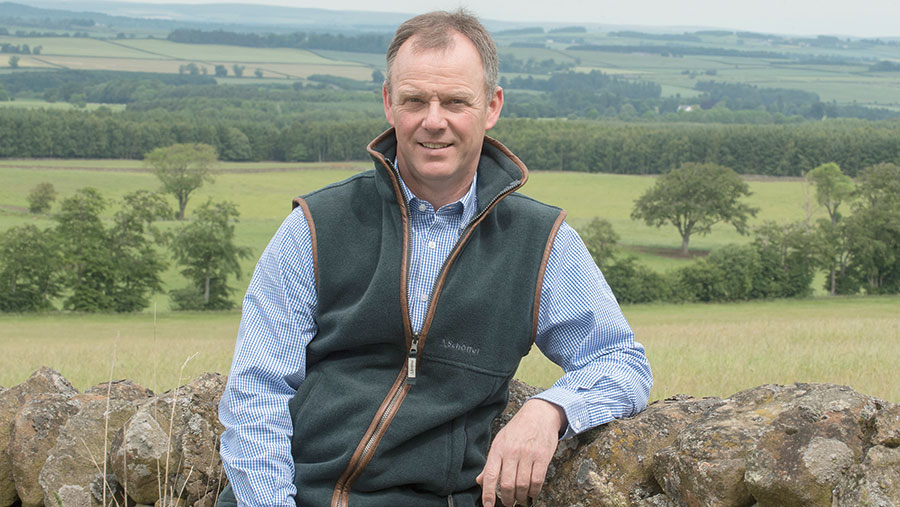FW Awards 2017: Farmer of the Year revealed
To ask what makes someone a farmer of the year is to ask what makes an outstanding farmer in 2017.
In this era when everybody has their own expectations of what agriculture should deliver, the answer must still ring forth loud and clear – to firstly make a profit.
See also: Farmers Weekly Awards 2016: Farmer of the Year
Profit keeps new entrants interested. Profit allows funds for improving and developing the business. Profit enables farmers to take care of the environment and support their community.
Robert Neill
Upper Nisbet Farm, Jedburgh, Roxburghshire

© Angus Findlay
Robert Neill makes no claim to be the most profitable farmer of our finalists, but what he has done is what every responsible farmer strives to do – make the most of what they have got to set up a business that will make a profit in most years, while leaving the land in better heart than last year.
Farmer of the Year 2017 is sponsored by McDonald’s

As every farmer knows, that work is never done, and what sets Robert apart is his dedication to raising the standard of farming, not just for himself, but in his community.
This is as a member of his discussion group helping to promote best practice, raising awareness of farming issues with legislators as part of NFU Scotland, and by hosting members of the general public on the farm to tell the story of quality British food.
Of particular importance in a nation where more than 50% of people live in a city is his work engaging with schoolchildren.
Robert and his family host school farm visits so frequently that a 24-seat transport trailer fitted with seats and seat belts has been acquired to tow younger visitors around the farm in safety.
Congratulations Robert. Farmers Weekly wishes you and your family every success in continuing to tell a positive farming story – and making one of your own.
What’s helping to make Upper Nisbet an efficient farm?
- Good relationship with landlord has allowed the size of the tenancy to increase, justifying capital expenditure and ensuring both sons have opportunity to farm if they want it
- Installed automatic weighing stations at drinkers in cattle sheds to reduce handling stress and continually monitor daily liveweight gain to help sell animals at the correct spec
- Invested in a weighbridge and a combine with yield mapping capabilities after expanding the arable area to precisely monitor field yields and fine-tune applications
- Use of an electronic weigh head in the cattle handling system to ensure correct dose rates of medication are delivered to maximise efficacy and avoid wastage
- Assisted tractor steering and variable rate fertiliser spreading to cut input usage by avoiding overlaps and targeting nutrients where they’re needed the most
- Use of electronic cattle EID tags to help with monitoring cattle performance over the longer term by being able to analyse high-performing bloodlines
